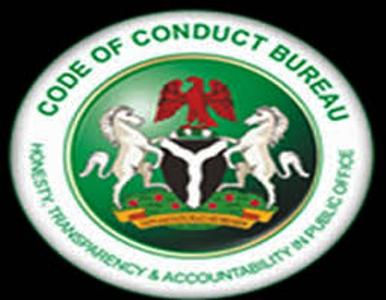The Code of Conduct Bureau (CCB) on Monday announced a major overhaul of Nigeria’s asset declaration process, introducing a new digital platform that will, for the first time, capture cryptocurrency and other emerging forms of digital wealth owned by public officers.
The Chairman of the Bureau, Dr. Abdullahi Bello, disclosed this in Abuja at a two-day stakeholder workshop on the Assets and Liabilities Declaration System (ALDS).
Bello, who was represented by CCB Board Member, Justice Ibrahim Buba (rtd), said the upgraded system marks a critical shift from the outdated manual process that has long slowed verification and weakened compliance.
“This new ALDS is a technology-driven platform designed to enhance compliance, strengthen verification, and capture emerging trends, including digital and cryptocurrency assets,” Bello stated.
He described the platform as both a preventive and accountability-enhancing tool aimed at promoting higher standards of public morality in line with constitutional expectations.
Bello highlighted the limitations of the old system, including printing delays, distribution hurdles, data inaccuracy, forgery risks, and massive storage challenges.
“The old process has outlived its usefulness. It cannot support Nigeria’s modern anti-corruption demands,” he said, urging the judiciary to validate the system’s legal framework, anti-corruption agencies to help strengthen its investigative application, and civil society groups to audit its transparency mechanisms.
He stressed that the fight against corruption “is a marathon, not a sprint,” and requires innovation, collaboration, and sustained public confidence.
The Coordinating Director of the Bureau, Ibraheem Mahmood, revealed that an earlier pilot digital test involving over 21,000 public officers showed promising results but also exposed the CCB’s infrastructural and digital shortcomings.
“The current system still requires the manual submission of physical documents. This poses challenges in storage, accuracy, and verification,” Mahmood said.
He added that the new platform would be built to proactively detect corruption and ensure secure data handling.
Mahmood said the Bureau is committed to developing a user-friendly, robust system that aligns with the technological realities of modern governance.
The workshop, attended by judges, anti-corruption agencies, civil society groups, and ICT experts, provided an avenue for participants to assess and critique the ALDS. It also featured technical sessions on the platform’s functionalities and compliance expectations.
Bello charged the attendees to “engage actively, critique constructively, and collaborate passionately,” insisting that Nigerians deserve a transparency system capable of restoring integrity to public office.
The News Agency of Nigeria reports that the consultation is expected to shape the final rollout of the digital asset declaration system. The platform, once approved, will become compulsory for all public officers at federal, state, and local government levels.
Do you want to share a story with us? Do you want to advertise with us? Do you need publicity for a product, service, or event? Contact us on WhatsApp +2348183319097 Email: platformtimes@gmail.com
We are committed to impactful investigative journalism for human interest and social justice. Your donation will help us tell more stories. Kindly donate any amount HERE




